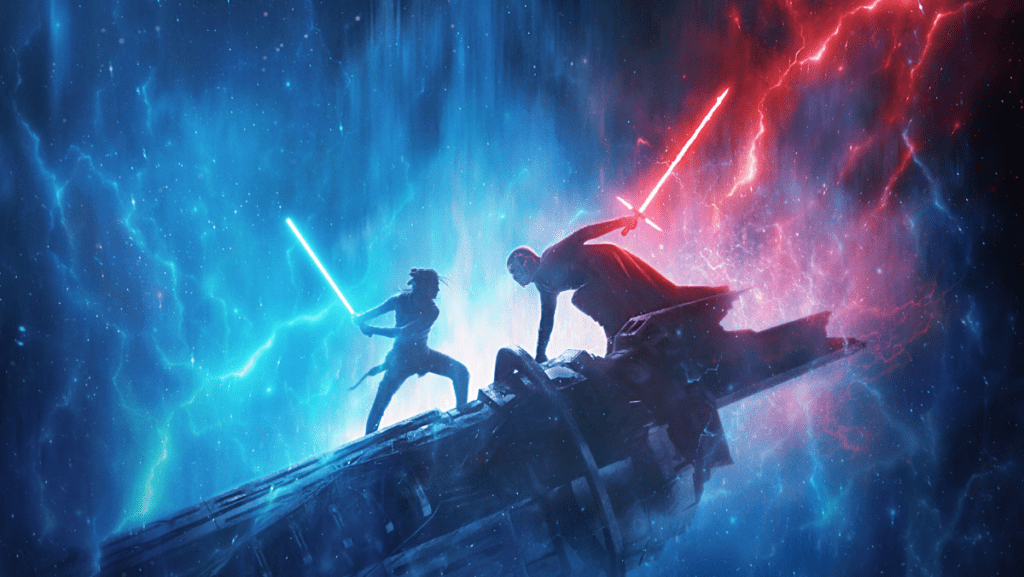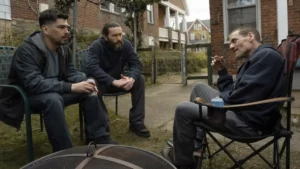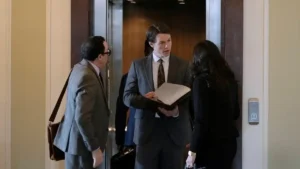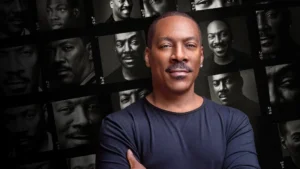Summary
J.J. Abrams’ conclusion to 40+ years of Star Wars is a hopeless retread that doesn’t know how to meaningfully tackle the full weight of its legacy.
I suppose we were always going to end up here. After the vitriolic backlash toward Rian Johnson’s The Last Jedi and the announcement of J.J. Abrams’ return to the director’s chair for the final installment, Star Wars: The Rise of Skywalker, after doing the heavy lifting for the introduction to this new Star Wars trilogy The Force Awakens, it should have always been safe to assume we were going back to living in the past. It’s what Abrams and his first installment were all about: give the people what they’ve liked before and hit all their sensitive nostalgia buttons in a big blockbuster spectacle that takes them back to that galaxy far, far away they haven’t quite recognized since 1983.
It worked, too. The Force Awakens was not only a box-office hit (an inevitability) but was also well-received by fans and critics alike. The mildest of criticisms were hurled at it for resembling the structure of A New Hope a bit too closely and for other minor narrative related issues, but all-in-all it turned out to be a crowd-pleaser of the highest order. The Last Jedi was all about throwing everything out the window in favor of a narrative with thematic strands about killing the past and moving forward; abandoning nostalgia and seeing our so-called heroes fail again and again and interrogating many of the long-standing ideas and themes of the franchise. Most people liked it well enough (this writer, in particular, found it to be the most invigorating entry in the saga since Empire), some people had quibbles with it, and a very small, very loud faction thought it was a war crime. These mega-dissenters coupled with Abrams’ devotion to repackaging the iconography of old to sell as new means The Rise of Skywalker was always doomed to try to right the so-called wrongs of Johnson’s film. No better way to do that than to take people back to the original baddie of the original trilogy.
This is where Palpatine comes in. He’s reintroduced in a frantic, rushed sequence that feels like if Disney had planned out this trilogy correctly rather than making it up as they go along, it would have been tacked on as the cliffhanger to the previous film. Instead, this one has to try to catch everyone up as quick as possible with the new story developments. In this way, TROS feels completely incongruous plot-wise from the previous two entries. We have had no real indication or foreshadowing that this is what we’ve been leading toward and, as such, makes this story direction feel like a last-minute patch job to try to salvage an ending that will satiate the more rabid members of the fandom. Needless to say, figuring all this out last minute doesn’t exactly do the film any favors.
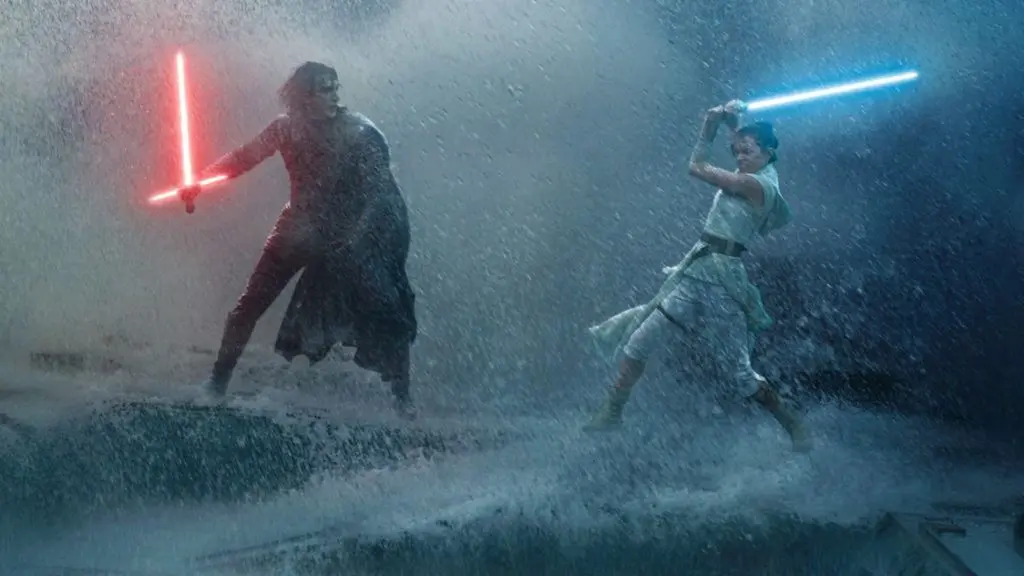
When it comes down to it, this rarely feels like the big, sweeping, epic conclusion to a 40+ year series that it so desperately needs to be. If anything this one feels the most episodic of any of the nine films, fumbling around for a true emotional purpose to help support its blatant McGuffin plotting but never finding a way to transcend the uninspired storytelling on display. Even the Rey/Kylo dynamic, the most interesting development to come out of this new trilogy, is given less attention than before and the thematic resonance has been significantly neutered. This film resorts to surface-level tricks and fails to carry the weight of its own legacy properly, instead opting for the most menial buds-on-another-space-mission story they could have possibly come up with. There are no risks taken, no boundaries pushed, because you can feel the tangible desperation to not piss anyone off. It’s all pretty disheartening.
At the very least, if there’s one thing that Abrams is very good at is shooting a blockbuster to look like a real movie, and he does it again here. The action sequences are mostly quite riveting and look spectacular. One lightsaber dual that literally takes place in two locations at once is striking and the ship battles are as gripping as ever. It helps that the cast selling everything is so solid, particularly Daisy Ridley and Adam Driver who do most of the heavy lifting in terms of trying to make this thing soar where it’s only ever able to accomplish a feeble lift-off before an engine failure sends it crashing back to the ground. John Boyega and Oscar Isaac are saddled with a lot of lame humor but fill out their parts fine even though their characters have turned out to not amount to much, Carrie Fisher feels as warm-hearted as ever in her posthumous appearance, and Kelly Marie Tran is mostly written out of the story completely, but I’m sure that has nothing to do with the fandom outrage targeted at her after The Last Jedi that got so bad she left social media completely. But what do I know?
Anyway, The Rise of Skywalker ultimately is enjoyable in the moment and prettier than most other blockbusters out there but just a couple hours after seeing it, any innate excitement from seeing this story reach its conclusion has totally dissipated into an empty feeling of how this could have ended differently. As is, this is a messy, bloated, slapdash jumble of disparate ideas and thematic threads that have no cohesion with one another. This trilogy that was shaping up to be a pretty solid continuation about failure and the burden the new generation faces in handling the mistakes of the old, instead ends with a whimper that’s only incidentally about that stuff and more about how Sith bad, Jedi good, and now we have all your money just to show you all those things you liked again. I guess in that respect this trilogy is a success.

